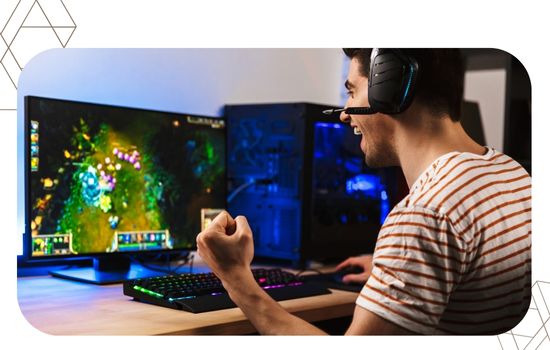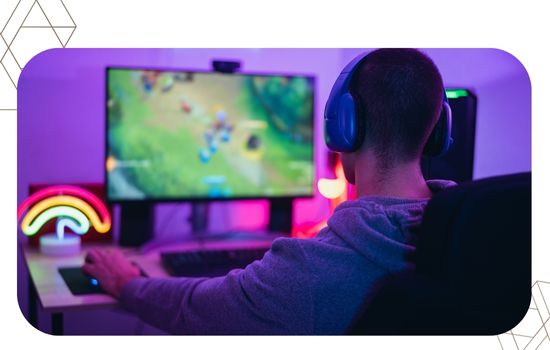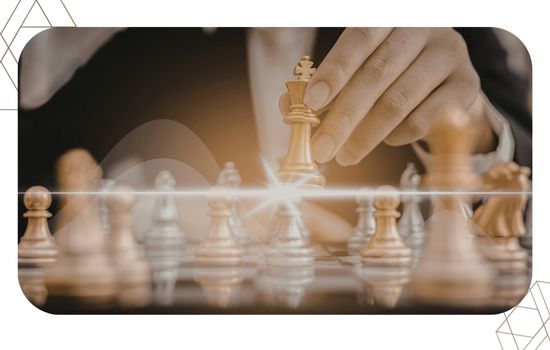Advertisements
The phrase “The impact of eSports on gamer culture“ It appears strongly from the first line because it synthesizes a phenomenon that transformed the way we compete, create community, and experience digital entertainment.

Today, before analyzing any trends, it is worth presenting a brief summary to guide the reading:
You will understand how esports have reshaped consumption habits, how they influence gamer identity, what changes they have driven in the industry, what challenges they bring, and why their growth is redefining the future of entertainment.
You will also find real statistics, two current examples, an analogy that facilitates understanding the topic, a table with reliable data, and a final section of frequently asked questions.
A scenario that changed forever
Talking about the impact of eSports on gamer culture involves exploring a movement that ceased to be a niche a long time ago.
Advertisements
The consolidation of professional leagues, mass broadcasts, global brands, and entire careers structured around this ecosystem changed behaviors and expectations.
Who would have imagined that competing in front of millions would no longer be a distant dream, but a real possibility for prepared players?
Accelerated professionalization, along with the maturation of streaming platforms, created a new cultural map in which the gamer experience is no longer limited to the act of playing.
Now it involves belonging, following, debating, and even working in this universe.
This process did not come about by chance.
According to Statista, the global eSports market reached $1.72 billion in revenue in 2023, demonstrating the economic and cultural weight of this segment.
Nothing indicates that the curve will slow down; in fact, the trend suggests the opposite.
Gamer identity evolves
Gamer culture has always been dynamic, but it has never transformed as rapidly as in the last decade.
Esports have given rise to new narratives, and many of them now shape how players see and relate to each other.
Many young people today identify not only as “gamers”, but as an active part of a global competitive community.
The distinction between casual gaming and competing in highly structured environments has become clear and, at the same time, more accessible.
New cultural references
The figures who define generations are no longer exclusively traditional athletes or artists.
Professional players, coaches, analysts, and streamers occupy spaces of comparable visibility, influencing fashion, behavior, consumption, and lifestyle.
This expanded recognition also strengthens the legitimacy of eSports as a career.
Although social debates about its validity still exist, the presence of major brands, investments, and media coverage reinforces its credibility.
Structured organizations
Clubs previously restricted to traditional sports now have divisions dedicated to eSports, expanding marketing strategies and fan relations.
Live events have become true multimedia spectacles, with production comparable to major sporting competitions.
To illustrate, it suffices to look at two current examples:
Example 1: The League of Legends Worlds final annually attracts thousands of fans to iconic arenas and millions of online viewers, surpassing the audience of several regional sports leagues.
Example 2: Universities in Mexico and Latin America are incorporating eSports programs with scholarships and their own infrastructure, something unthinkable a few years ago.
These developments demonstrate how eSports have become a key part of modern entertainment, influencing standards of quality and experience.
Renewed social dynamics
Instead of viewing games merely as a pastime, many people now connect to them to build social networks and create lasting bonds.
Different generations learn to interact on common ground, expanding digital inclusion and cultural exchange.
Communities that cross borders
Mexican players compete against Europeans, Asians, and Latin Americans daily, creating an international environment that previously only existed in large-scale professional settings.
This approach shortens cultural distances, facilitates language exchange, and promotes values such as collaboration, strategy, and discipline.
New social roles
In addition to professional players, there are also narrators, moderators, data analysts, HUD designers, strategists, managers, and content producers.
The ecosystem is diversifying, generating opportunities that go beyond individual performance.
An economic impact that is hard to ignore
Although the cultural aspect is strong, the economic dimension also reinforces the transformation.
Global brands, teams, streaming platforms, and developers generate revenue with formats that blend competition, advertising, and community engagement.
Below is a simple table summarizing real data on the global market (based on Statista):
| Year | Global eSports revenue | Observation |
|---|---|---|
| 2021 | 1.28 billion USD | Post-pandemic growth |
| 2022 | 1.38 billion USD | Increased brand investment |
| 2023 | 1.72 billion USD | Expansion of leagues and events |
Although these numbers represent an international scenario, they clearly reflect the strength of this industry and its ability to influence gamer culture.

Read more: Soccer games: the passion for sports in digital format
Why do eSports change consumption habits?
The answer can be compared to a simple analogy: e-sports function as a large “digital plaza” where everything happens at the same time.
People compete, observe, learn, consume, and interact as in a modern cultural center that never closes its doors.
Players and spectators adopt specific behaviors:
They follow their favorite teams, consume educational content to improve their performance, invest in high-performance peripherals, and value the brands that sponsor the teams they admire.
This consumption, driven by a competitive culture, generates technological trends, influences hardware design, and defines preferences within the gamer community.
The role of technology in cultural expansion
Technology does not just act as a support; it directly drives cultural changes.
Continuous improvements in processors, connections, and streaming platforms make possible the scale that eSports has achieved.
Streaming as a cultural pillar
Live broadcasts create instant narratives, allowing fans to follow tournaments in real time.
This dynamic contributes to the gamer culture adopting a ritual similar to that of traditional sports: reacting to plays, cheering, debating, and celebrating.
Artificial intelligence and competitive analysis
Artificial intelligence tools help players and coaches review behavioral patterns, optimize strategies, and understand micro-details of performance.
This constant use of technology raises the competitive level and deepens the experience within the ecosystem.
Challenges that need to be discussed
Not everything progresses without obstacles. The expansion of esports also introduces important debates:
Mental health management, excessive training load, financial stability of young athletes, and pressures arising from public exposure.
Professional organizations are beginning to adopt psychological support practices and balanced routines, but there is still a long way to go to ensure a healthy environment.
Another critical point includes unethical practices, such as digital cheating or manipulation of results, which affect the credibility of the sector.
Platforms and leagues invest in monitoring systems to mitigate risks; however, continuous evolution is essential.
Conclusion: a phenomenon that is rewriting gamer culture
To speak of the impact of eSports on gamer culture is to acknowledge a profound transformation, driven by technology, community, competition, and creativity.
The changes affect not only those who play, but the entire chain of consumption, production and innovation.
The phenomenon is already part of everyday digital life and will continue to influence the way people connect, learn, and entertain themselves.
The cultural relevance of eSports tends to grow, integrating into multiple sectors of society and consolidating its position as one of the pillars of modern entertainment.
Read more: Multiplayer games: the experience of playing in community
Frequently Asked Questions (FAQ)
- Can eSports be considered real sports?
Yes. They have rules, structured competitions, intense training, and official recognition in several countries.
Performance requires technical and cognitive skills comparable to other sports.
- Can anyone start a career in eSports?
The entry point is accessible, but professionalization requires discipline, study, and practice time.
There are careers beyond player, including analysis, management, storytelling, and content creation.
- Does Mexico have a presence on the international competitive stage?
Yes. Mexican teams participate in regional and global tournaments in titles such as Valorant, Free Fire, and League of Legends.
The scene is growing with university infrastructure and private investment.
- Do eSports negatively affect academic life?
It depends on individual management. When properly balanced, they can even improve cognitive skills such as focus, decision-making, and organization.
Universities already offer structured programs that combine study and competition.
- Will the future of gamer culture depend on eSports?
The influence of esports will remain strong, although gamer culture is diverse. Narrative games, indie communities, and single-player experiences will also continue to be relevant, coexisting harmoniously with the competitive world.



